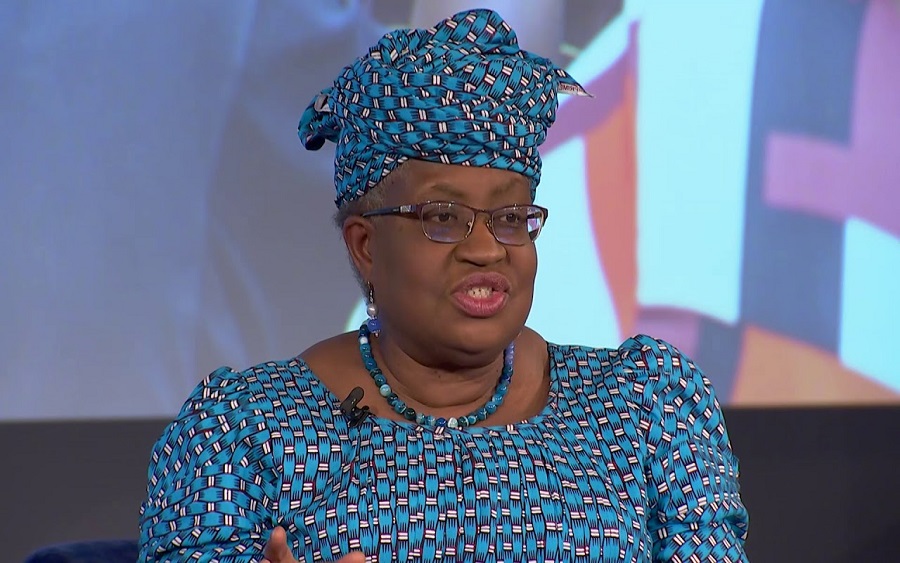Nigeria’s average GDP growth rate has remained negative since 2014 – Okonjo-Iweala
The Director General of the World Trade Organisation (WTO), Ngozi Okonjo-Iweala, has observed that Nigeria’s Gross Domestic Product (GDP) growth rate on average has been steadily declining since 2014, signalling a downturn in the economic well-being of the average Nigerian. Okonjo-Iweala, speaking at the annual general conference of the Nigerian Bar Association (NBA) on Sunday, […]

Ngozi Okonjo-Iweala
The Director General of the World Trade Organisation (WTO), Ngozi Okonjo-Iweala, has observed that Nigeria’s Gross Domestic Product (GDP) growth rate on average has been steadily declining since 2014, signalling a downturn in the economic well-being of the average Nigerian.
Okonjo-Iweala, speaking at the annual general conference of the Nigerian Bar Association (NBA) on Sunday, noted that the country’s economic fortunes experienced a reversal following the decade between 2000 and 2014, during which the average GDP growth rate was approximately 3.8%.
According to her, this consistent GDP growth outpaced the nation’s population growth, which was only around 2.6% annually.
However, she pointed out that since 2014, the situation has reversed, with GDP showing a negative growth rate of 0.9%, as the government has been unable to sustain the positive growth achieved by previous administrations.
“Many of the big problems the NBA is grappling with today have its root in Nigeria’s failure to sustain the rate of economic growth and development that consistently outpaced the growth of our population.
“We have had episodes of reforms and faster economic growth that was not merely a function of the price of oil. But we have been unable to consolidate and build on them and millions of our compatriots have paid the price in terms of diminished job prospects and human well-being.
“For example, in the decade between 2000 and 2014, we have an average GDP growth rate of 3.8% well above our population growth rate of 2.6% per annum, meaning that people were on average truly improving their standard of living.
“During the following decade, average annual GDP per capita has been negative around minus 0.9% meaning people were worse off because we were not able to sustain prior positive growth momentum,” Okonjo-Iweala added.
Nigeria must sustain good economic policies
Speaking further, Okonjo-Iweala said the country needs to sustain good economic policies irrespective of the administration or political party in power in order to foster development in the country.
The former finance minister said policy inconsistencies have accounted for the reversal in the fortune of the nation’s economic development.
She advocated for a social contract between the government and the people, which will go beyond the political party in power.
According to her, this social contract must be generally accepted on what economic policies should be followed regardless of who is in power.
“Maintaining good economic and social policies; maintaining policy consistency and adding more reforms on top of that will lead us along the path of good progress that we all desire,” she added.
Nigeria’s Gross Domestic Product (GDP) growth declined to 2.98%, lower than the rate recorded in the fourth quarter of 2023, which was 3.46%, according to a report from the National Bureau of Statistics (NBS).
However, the GDP growth rate in the quarter is higher than the figure recorded in the corresponding quarter of 2023 which was 2.31%.
